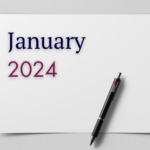-Phill Namara
Following the recently announced merger of Apollo Global Management and Athene, a leading fixed-annuity provider in the US, it is fitting to examine the drivers behind the confluence of mergers and acquisitions between alternative asset managers and insure. See here for link to article on the transaction: Here
Our prior blog examined some of the broader commercial rationale for these transactions and this blog will explore the structural drivers causing insurers to abandon their legacy liabilities and we expect to see many more of these transactions.
Fixed rate obligations and declining returns
“The insurance industry has estimated its future obligations using a set of optimistic macro assumptions. If the current crisis is prolonged, these assumptions will slip further and further out of reach… we will see many companies looking to shed liabilities that we find attractive to acquire” – James Belardi, CEO of Athene.
In a structurally lower interest rate environment, insurers with fixed rate or indexed annuities face tightening spreads between their investment returns and their obligations. Over the last decade this has culminated in many insurers shedding their legacy books of long-term liabilities as they have become uneconomic to manage. Similarly, defined benefit corporate pensions too have become cumbersome, resulting in a spike in pension risk transfer transactions whereby the pension provider offloads some the plan’s liabilities, typically to an insurer.
![]()
Source: Pension Research Council at Wharton1
Amidst this challenging secular trend Athene thrives, but how?
A brief history of Apollo and Athene
Athene was formed following the global financial crisis in 2009 by James Belardi, former president of SunAmerica Life Insurance with Apollo CEO and co-founder Marc Rowan. The strategy since inception was to scoop up blocks of mispriced insurance liabilities, typically fixed rate and indexed annuities, and use these liabilities to fund a higher returning asset book managed entirely by Apollo Global Management.
![]()
Source: Athene 2018 Investor Day2
In outsourcing investment management to Apollo Athene could run a leaner cost structure and focus their efforts on distribution, improving their net investment spread. Conversely, to manage these assets, Apollo built out an enviable credit business with capabilities across collateralised loan obligations, commercial real estate origination, leasing, direct lending, and several other strategies providing ever-more yield opportunities to satiate not only Athene, but an industry, starved of return.
The future of alternative asset management
The majority ownership of an insurer accrues to the investment manager not only economic interests in the form of management and performance fees, but also further strengthens their relationships with existing limited partners (“LP’s”). Typically, these transactions are structured as co-investments, allowing LP’s an opportunity to deploy more capital and enjoy more direct control over the assets in which they are invested.
In the words of Marc Rowan, insurance acquisitions allow Apollo to “eat our own cooking side by side with our limited partners, public vehicles, retail investors and capital markets investors.” The creation of value for all stakeholders within a firm’s ecosystem fosters reliability and improves their probability of not only enduring but succeeding.
Montaka’s funds remain exposed to these attractive secular tailwinds through their ownership of KKR, Blackstone and Carlyle. Whilst these firms’ insurance operations are nascent relative to those of Apollo, at current prices the market is ascribing little value to their potentially successful build out and execution of similar insurance acquisition strategies. Further these firms have far better real estate and private equity franchises which generate not only larger management fees but also performance fees. We continue to believe they remain undervalued today considering the $10 trillion US retirement fund insurance opportunity set before them and the structural migration of capital from fixed income to higher yielding alternative assets.
Source:
- https://pensionresearchcouncil.wharton.upenn.edu/blog/new-financial-instruments-for-managing-longevity-risk/
- http://s1.q4cdn.com/886888837/files/doc_presentations/2018-09-20-Investor-Day-Presentation.pdf
Phill Namara is a Research Analyst with Montaka Global Investments. To learn more about Montaka, please call +612 7202 0100.





